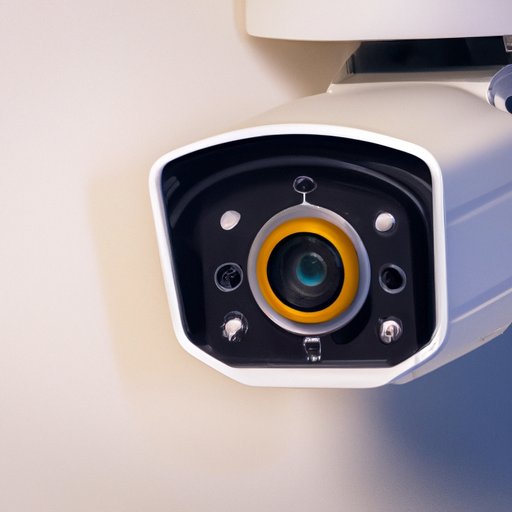
Introduction
Hidden cameras have become increasingly common in recent years, raising concerns about privacy and surveillance. Many people are unaware of the extent to which they may be monitored or filmed, and may not know how to detect hidden cameras. This article aims to equip readers with the knowledge and skills necessary to find hidden cameras, whether they are DIY enthusiasts or opt to hire professional services.
DIY Detection Methods
There are many DIY methods you can use to detect hidden cameras without breaking the bank. One of the most straightforward methods involves using your smartphone’s camera to scan the room for hidden lenses. Since most lenses have an infrared filter that reflects light differently, you can easily see if there is a hidden camera lens in the room. Additionally, you can use a flashlight or a radio receiver to detect hidden cameras as well. These techniques may be cheap, but they do require some skill and effort to work properly.
Professional Detection Services
If you’re not confident in your ability to detect or locate hidden cameras, you might opt for professional services. There are several reputable companies that offer surveillance detection services, such as TSCM America, Brickhouse Security, and SpyFinder Pro. These companies can assist with locating hidden cameras and other surveillance devices, and in some cases, they may provide legal support if the hidden camera violates privacy laws. Hiring such professional services can be expensive, however, depending on the complexity and duration of the investigation.
Legal Aspects
Hidden cameras can be lawful or illegal, depending on the context and location. Various states and countries have different regulations on hidden cameras, so it’s important to research laws in your area. In general, hidden cameras cannot be legally placed in any area where people have a reasonable expectation of privacy, such as in bathrooms, bedrooms, changing rooms, and locker rooms. Additionally, employers have legal obligations to inform their employees if they are being monitored in the workplace. Violating these laws can be considered a criminal offense, and offenders may face prosecution.
Privacy Concerns
The widespread use of hidden cameras has raised concerns about privacy and surveillance. As such, it’s important to protect your privacy and, when needed, to detect hidden cameras. To avoid being monitored, keep an eye out for suspicious devices or signs of surveillance, such as unexpected lights or wires, or hidden cameras in smoke detectors or wall sockets. Additionally, activate the privacy setting on your computer and smartphone, and whenever possible, secure your devices with strong passwords or PINs.
Step-by-Step Guide
To find hidden cameras in a room, start by doing a visual search of the space and any objects or items in the room. Look for unusual or out-of-place objects, such as small holes or cracks in walls or ceilings, or smoke detectors in strange locations. You can then use a flashlight or radio receiver to scan the room for hidden cameras or signals emitted by wireless cameras. If you suspect a hidden camera is present but cannot locate it, you may need to hire a professional surveillance detection service to thoroughly search the room with specialized equipment.
Real-Life Examples
There have been many instances where people have discovered hidden cameras in their homes, workplaces, or other spaces. In some cases, hidden cameras were installed by a spouse or caregiver who was suspected of wrongdoing. In other cases, hidden cameras were discovered in hotel rooms or vacation rentals. Experts in the security industry and law enforcement officials have been involved in many of these discoveries and can provide valuable insights and advice on how to handle such situations.
Cautionary Advice
If you find a hidden camera, it’s important to proceed with caution and avoid confronting the individual or property owner who may have installed it. Instead, contact local law enforcement and report the incident. Attempting to handle the situation on your own could lead to dangerous or unnecessary conflict. It’s also advisable to have an attorney present if necessary, particularly if legal action is needed to remove the hidden camera.
Conclusion
Knowing how to find hidden cameras is important for protecting your privacy and avoiding unwanted surveillance. Whether you opt for DIY detection methods or professional surveillance detection services, it’s essential to stay informed about the legal aspects of hidden cameras and how to identify them. By following the tips and advice in this article, you can develop the necessary skills and knowledge to detect hidden cameras and protect your privacy.





